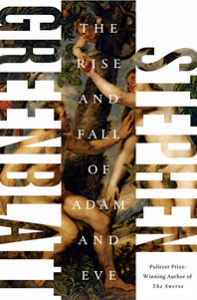ASAP/9 starts today in Oakland!

The Association for the Study of the Arts of the Present presents a jam-packed schedule at the Oakland Marriott City Center beginning on Thursday, October 26, and running through Sunday, October 29.
A quick glance at the schedule shows that no fewer than 24 of the conference presenters have published in, organized special issues of, or worked on the staff of Representations:
Charles Altieri
Weihong Bao
Natalia Brizuela
Sarah Brouillette
Julia Bryan-Wilson
Christopher Chen
Joshua Clover
Christopher Fan
Shannon Jackson
Peter Hitchcock
Joseph Jeon
SanSan Kwan
Colleen Lye
Theodore Martin
Annie McClanahan
Tom McEnaney
Mark McGurl
Christopher Miller
Debarati Sanyal
Jeffrey Skoller
Michael Szalay
Rebecca Walkowitz
Barrett Watten
Dora Zhang





 The Rise and Fall of Adam and Eve explores the enduring story of humanity’s first parents.
The Rise and Fall of Adam and Eve explores the enduring story of humanity’s first parents.